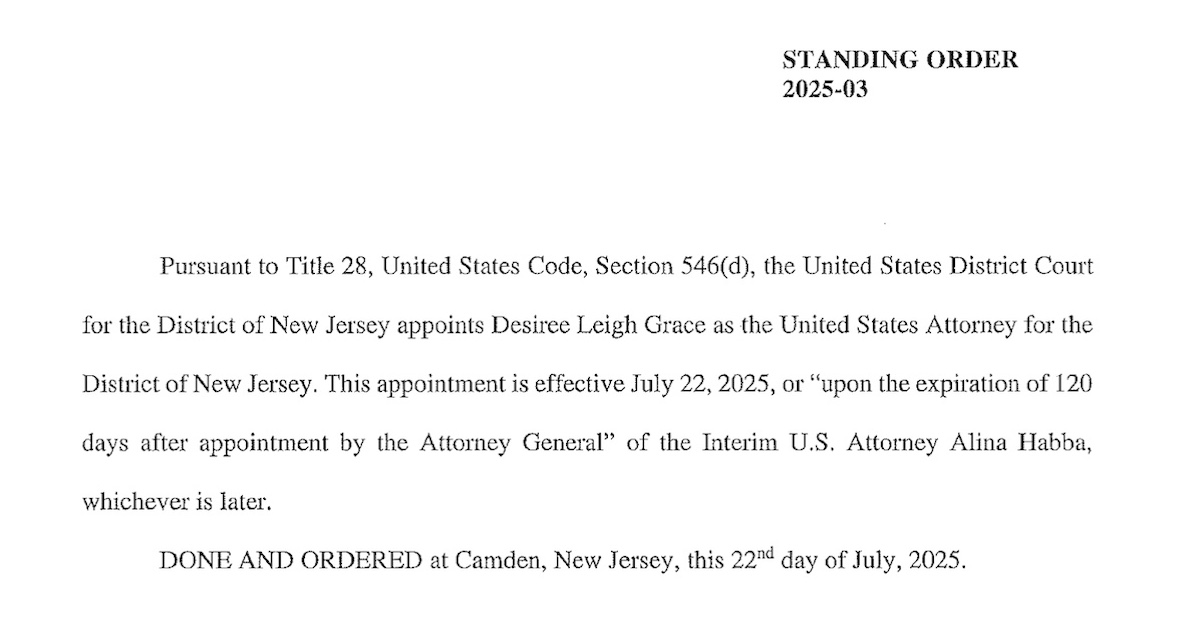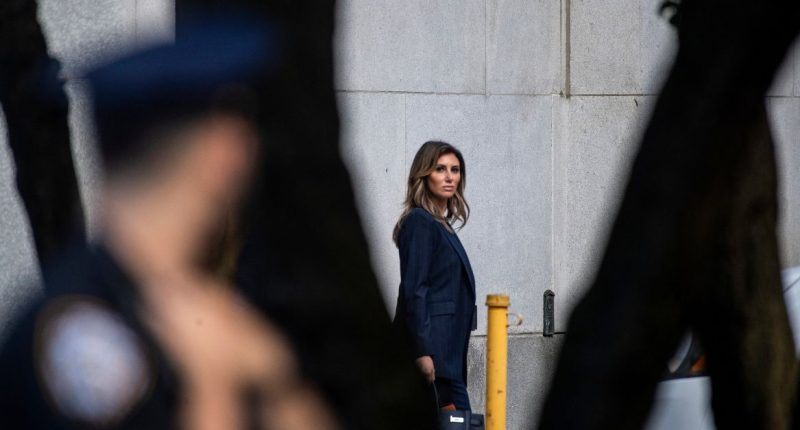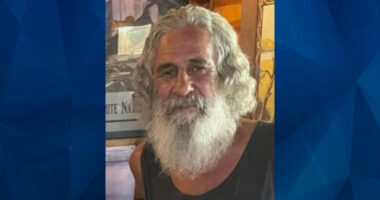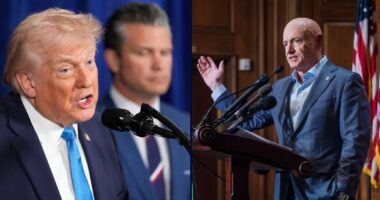Share this @internewscast.com
Trump attorney Alina Habba leaves New York Supreme Court on Monday, Oct. 2, 2023 in New York (AP Photo/Brittainy Newman).
Federal judges voted and decided not to extend Alina Habba’s months-long tenure as New Jersey’s top federal prosecutor, and the court appears to be well within its legal authority to do so, regardless of what certain higher-ups in President Donald Trump’s DOJ have said and done thus far about it.
As this story was being written, U.S. Attorney General Pam Bondi posted on X in support of Habba, announcing her court-appointed replacement, Desiree Grace, “has just been removed,” but Bondi did not immediately elaborate on who did the removal and on what authority.
“@USAttyHabba has been doing a great job in making NJ safe again. Nonetheless, politically minded judges refused to allow her to continue in her position, replacing Alina with the First Assistant,” Bondi wrote. “Accordingly, the First Assistant United States Attorney in New Jersey has just been removed.”
.@USAttyHabba has been doing a great job in making NJ safe again. Nonetheless, politically minded judges refused to allow her to continue in her position, replacing Alina with the First Assistant.
Accordingly, the First Assistant United States Attorney in New Jersey has just…
— Attorney General Pamela Bondi (@AGPamBondi) July 22, 2025
Trump’s former Mar-a-Lago case and hush-money trial criminal defense attorney and now Deputy Attorney General, Todd Blanche, separately provided more information, citing “the President’s authority.”
“The district judges in NJ just proved this was never about law—it was about politics. They forced out President Trump’s pick, @USAttyHabba, then installed her deputy, colluding with the NJ Senators along the way. It won’t work,” he wrote. “Pursuant to the President’s authority, we have removed that deputy, effective immediately. This backroom vote will not override the authority of the Chief Executive.”
How on earth did we get here?
Habba had served as a legal spokeswoman and one of the attorneys for private citizen Trump through his New York civil fraud trial, E. Jean Carroll’s defamation lawsuit, and more before she parlayed those losses into a counselor to the president role and a position as acting U.S. Attorney for the District of New Jersey. She was appointed by Bondi on an interim basis nearly 120 days ago, the limit for acting appointments to serve under the relevant statute.
Although Trump has nominated Habba to serve permanently as U.S. attorney, the administration has not been able to get that nomination off the ground in the U.S. Senate before her acting stint’s expiration, leaving Habba at the mercy of judges in the meantime.
To hear Blanche tell it, the move from the court was another example of unhinged left-wing activism.
“The district court judges in NJ are trying to force out @USAttyHabba before her term expires at 11:59 p.m. Friday,” Blanche posted on X. “Their rush reveals what this was always about: a left-wing agenda, not the rule of law. When judges act like activists, they undermine confidence in our justice system. Alina is President Trump’s choice to lead—and no partisan bench can override that.”
In March, Bondi named Habba interim U.S. attorney pursuant to 28 U.S. Code § 546, a statute which says such an appointee could remain in that role either upon confirmation by the U.S. Senate or for a period of 120 days.
The law expressly says that a district court “may appoint a United States attorney to serve until the vacancy is filled” and that an “order of appointment by the court shall be filed with the clerk of the court.”
In other words, as the clock ticked ever closer to Habba’s 120-day limit, the court was left to vote and decide whether to install Habba as U.S. attorney “until the vacancy” — for which she has thus far been unsuccessfully nominated — “is filled” or to appoint someone else. The court, citing 28 U.S. Code § 546(d), chose door number two, selecting Habba’s first assistant Desiree Grace instead.
Notably, the court’s standing order said that the appointment was effective as of today or “upon the expiration of 120 days after appointment by the Attorney General” of Habba, “whichever is later.”

Court order appointing Desiree Grace as U.S. attorney as Alina Habba’s acting tenure expired.
By Blanche’s calculation, Habba’s interim stint was set to expire this Friday just before midnight, so the question appears to be not whether the court had authority to issue the standing order but whether its decision was effective.
The U.S. District Court for the Northern District of New York recently followed the same procedure in the case of interim U.S. Attorney John Sarcone, declining to appoint him but this time without naming a successor. That decision came after Sarcone had apparently claimed falsely that the court had decided to appoint him at the end of his 120 days in office. In the end, the DOJ found a way to keep Sarcone in place, controversially appointing him as a first assistant U.S. attorney and as a “special attorney to the attorney general” through 28 U.S. Code § 515.
“The Attorney General or any other officer of the Department of Justice, or any attorney specially appointed by the Attorney General under law, may, when specifically directed by the Attorney General, conduct any kind of legal proceeding, civil or criminal, including grand jury proceedings and proceedings before committing magistrate judges, which United States attorneys are authorized by law to conduct, whether or not he is a resident of the district in which the proceeding is brought,” the statute says.
Might Habba be re-installed on the same basis, especially now that the first assistant appointed to replace her is out of the picture?
The Habba and Sarcone examples aren’t the only times 28 U.S. Code § 546 has come into play during the Trump administration. During the president’s first term, his then-Attorney General Bill Barr in 2020 tried to force out U.S. Attorney for the Southern District of New York Geoffrey Berman. The legal question at the time was whether the U.S. attorney general had the power to fire the court-appointed Berman.
Berman was first appointed in 2018 on an interim basis by Attorney General Jeff Sessions, but when his 120-day stint was up, a federal court appointed him as U.S. attorney and said he would remain so “unless the President of the United States nominates and the Senate confirms a United States Attorney for this district[.]”
When he refused to immediately step aside, Berman was clear about why he wouldn’t.
“I learned in a press release from the Attorney General tonight that I was ‘stepping down’ as United States Attorney,” Berman said. “I have not resigned, and have no intention of resigning, my position, to which I was appointed by the Judges of the United States District Court for the Southern District of New York. I will step down when a presidentially appointed nominee is confirmed by the Senate. Until then, our investigations will move forward without delay or interruption.”
Berman shortly thereafter left upon his firing by Trump.
















